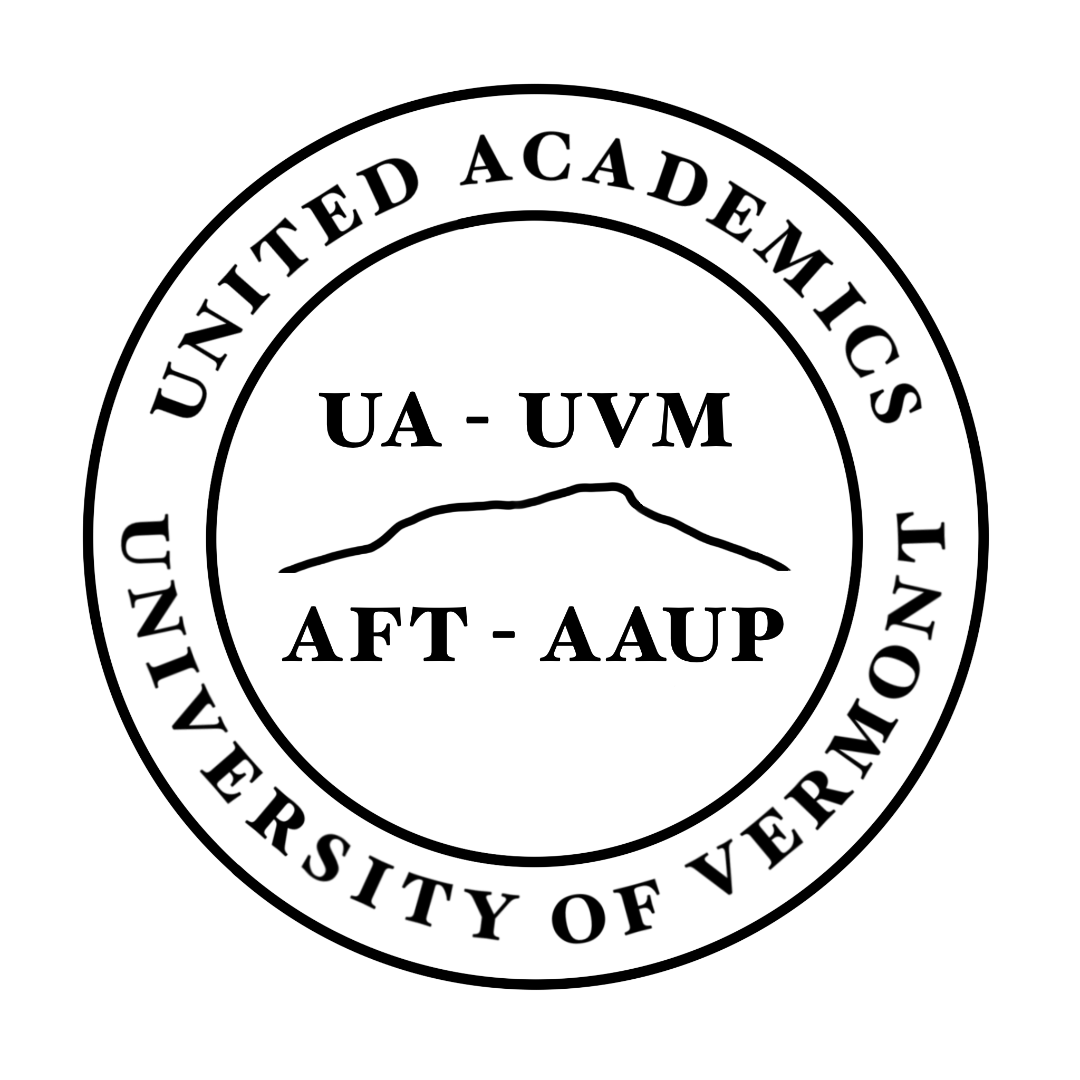Dear colleagues,
I write today about workshops on Oct. 23rd, the members meeting, and more. Before I get into details, I just want to say that working for UA over the years, in various capacities has sometimes been relatively easy and sometimes hard, but it has always been the most satisfying kind of university service I’ve done (and I’ve done many other kinds of service, including being a Chair). Life is better if you care. As long as faculty step up and help out, UA makes UVM a better place.
So please take seriously the following opportunities.
First, please consider joining in one of two workshops on Oct. 23rd, led by Jamie Daniel from the American Association of University Professors' national office. The focus: building United Academics' membership, member involvement, and union voice across all of UVM's academic units. Jamie will join us to lead these workshops, both in the UVM Alumni House's Hurd Library, on Tuesday, October 23, and you have your choice of two workshop times: 8-9:30 am, with continental breakfast, OR 5-7:30 pm, with dinner and choice of beer, wine, or nonalcoholic beverage.
The workshops 1) will explore fresh ideas and inspiration we can take from other faculty unions around the country to reach out to new faculty and keep current members informed, engaged, and involved; 2) develop plans to recruit and train department representatives for every unit on campus so that we have a robust communication network to reach out to faculty about issues as they arise, and inform and support our next round of bargaining (which for the full-time faculty will likely begin by February 2020--just a little over a year from now!)
Please let Nancy Welch know if you can attend one of these two workshops: nwelch@uvm.edu.
Second, on Nov. 7th, at 3:30-5:30 in Waterman 413, please plan to come to our fall semester UA Members meeting, where we will discuss and vote on major issues before the union, including UA’s future financial and administrative organization. The event will conclude with a celebration of Steve Finner, our beloved and unstoppable long time consultant and higher ed union expert, who is retiring at the end of this semester.
Third, consider running for a position with UA in this fall’s elections, which will be held shortly after the Member’s Meeting, for terms running from July 1, 2019 to June 30, 2021. Serving as a Delegate for your college or a representative for your department is a modest time commitment (meetings once a month) and a good way to get to know UA and colleagues from around campus. You can also run for a position on the EC, for Vice President, President, or more. Email Nominations and Elections Chair Charles-Louis Morand Métivier cmorandm@uvm.edu, and/or read about opportunities with UA here: http://www.unitedacademics.org/descriptions-of-elected-positions/.
Finally, some great news: the UVM part-time faculty membership has voted to ratify a new part-time faculty collective bargaining agreement, which all agree is one of the best contracts ever achieved for part-time faculty. Our bargaining team has been in negotiations with UVM's administration for over 6 months, and we are appreciative of the work of both teams and the mutual willingness to compromise to achieve a fair contract for UVM's part-time faculty. Gains in this contract include a 8.75% pay raise over 3 years, a $2000 promotion bonus, increased professional development funds, a new part-time faculty award for excellence in teaching, increased access to tuition credits, and improvements in per diem payment for additional duties. Congratulations and many thanks to Chief Negotiator Katlyn Morris and the tireless negotiating team: Dan Wells, Fabio Fua Nascimento, Heather Fitzgerald, Jean Sienkewicz, and Brian Tokar.
As always, please keep in touch.
Best,
Tom Streeter
President, United Academics

